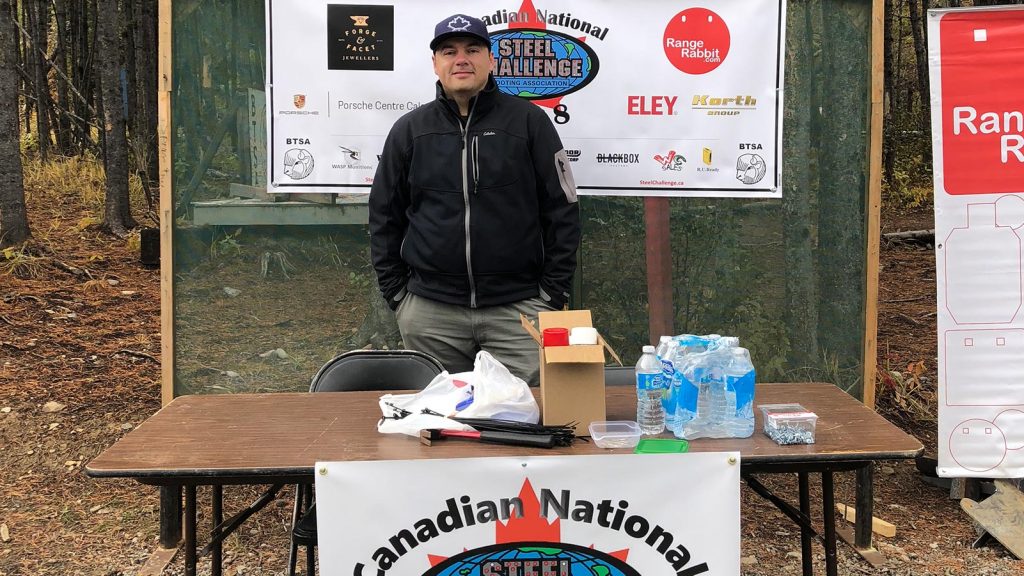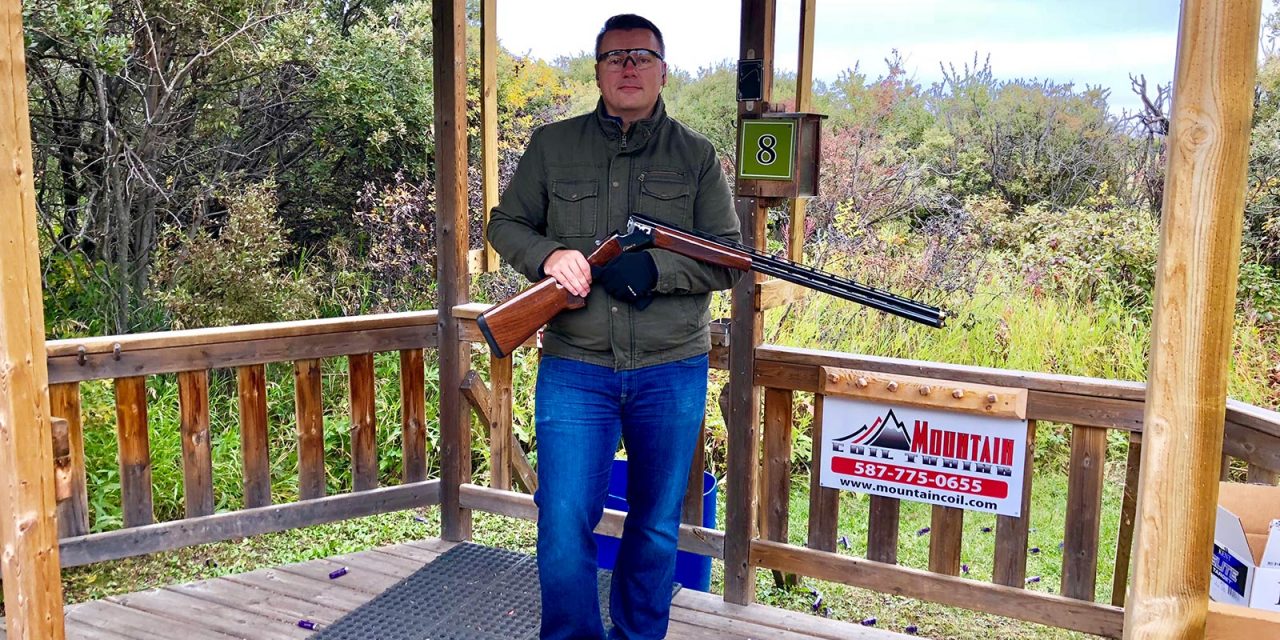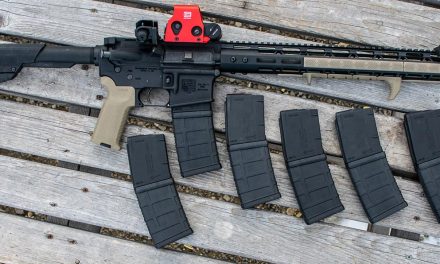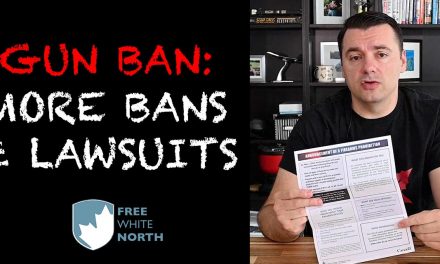It’s kind of funny, lots people seem to have an opinion on what the typical Canadian gun owner looks like, or what they do for a living.
Most of you probably think of the American 2nd Amendment Enthusiast/Don’t Tread On Me/From my Cold Dead Hands type of guy, or maybe a “bubba”, redneck, or white trash dude wearing a stained wife-beater screaming about the “gubment” and how they’re giving “special rights” to non-Christians and “the gays”. While I’m sure that there is a very small portion of the Canadian gun owner population that could probably fit into the latter category, I can honestly say that everyone that I have met, competed with, or enjoyed some beers with after the shoot has been pretty much like me. Socially I’m quite libertarian and I’d call myself a progressive but lean toward fiscal responsibility when it comes to government spending.
My story is fairly typical of the Canadian gun owner, with some minor differences. It’s a bit of a long read, so I sincerely apologize for that.
I’m an immigrant, and came to Canada as 10 year old child fleeing a civil war in my country of birth, which ended up tearing itself apart and splitting it into six different mini-countries (you now require a passport to travel between them all). I grew up in Calgary, went to school, played many sports at a competitive level my entire life, started my first business at the age of 16, incorporated a software company at 19, went to university, got a job in IT in the Energy sector while still running my own business, eventually got married and sold my part of the software company, and now run a cyber-security consulting company with my wife.
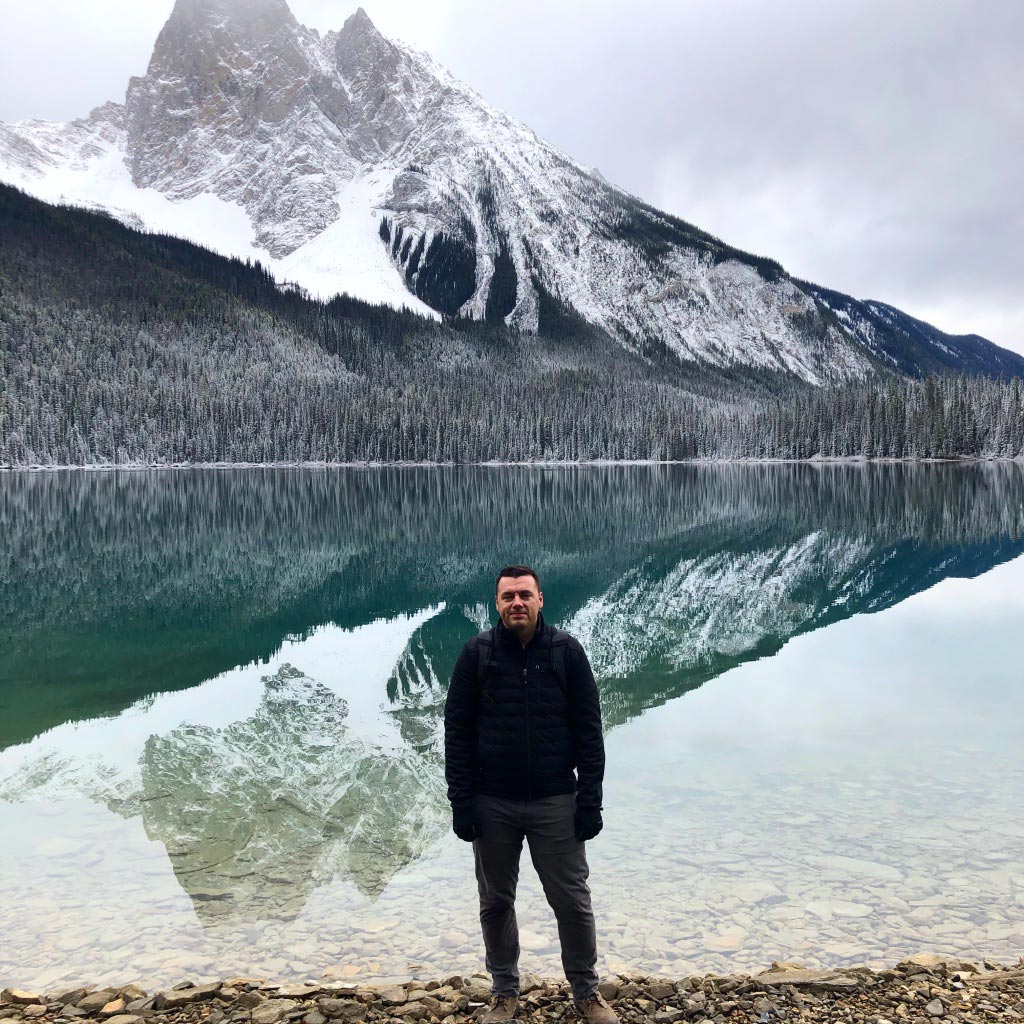
I was never exposed to firearms, apart from being shot at by snipers, tanks or artillery as a child. When I was 19 my buddy wanted to go shooting for his birthday, so we all went to The Shooting Edge here in Calgary. That was the first time I handled a pistol, and I was honestly surprised that those were legal in Canada, purely out of my own ignorance. It was fun, but I didn’t really think to explore what it would take to get a license or buy a gun at the time.
Fast forward 14 years later, my wife is told that she’s going to inherit a bunch of firearms from her grandfather, and he suggests to her that she get her license so that the government doesn’t just take them from his estate.
My wife didn’t grow up around guns either, and she was actually quite afraid of them at the time. We both decided to get our license together, and the non-restricted (Posession and Acquisition License) kind since we didn’t have any intention of owning a restricted firearm. We took the one-day course, submitted the 4 page long application, waited about 5 months for all of the background checks and reference checks to come back, and finally got them in the mail. I bought her a 20 gauge over/under shotgun to celebrate and we went skeet shooting a bunch of times, which got us both hooked.
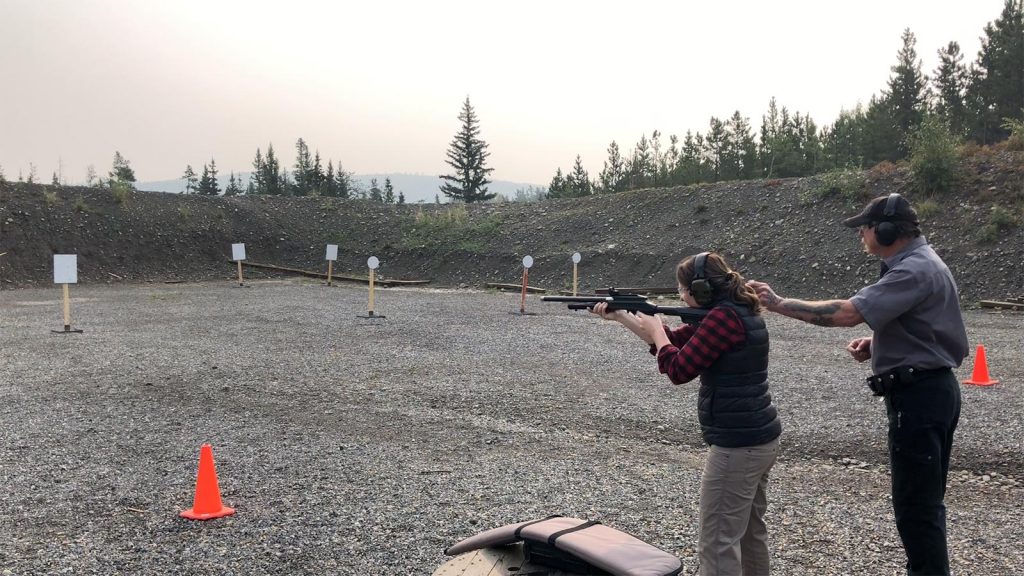
I never hunted as a child, only fished, so I was really curious about what it took to hunt an animal for sustenance. With everything going on in the world I figured it could be a useful skill to have, even if I didn’t hunt on a regular basis. So I bought a hunting rifle and scope, learned to use it properly, got pretty good with it, and tried to learn as much as possible about the art and skill of hunting. I’m not talking about dudes with four-wheelers ripping it up on crown land since that kind of hunting never really appealed to me. I’ve hunted on foot throughout the Rocky Mountains, searching for that elusive Elk or whitetail buck, putting on an ungodly amount of miles on my boots while carrying a 40lb pack and a firearm in thigh-deep snow.
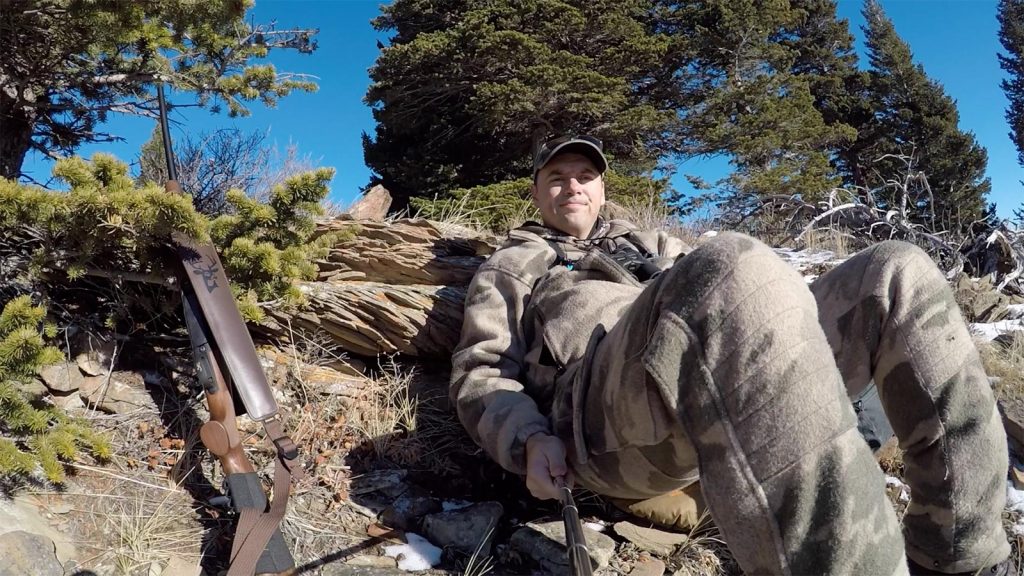
I got into competitive shooting on a lark, when I got invited by a work vendor to their “Annual Turkey Shoot” sporting clays day. I ended up winning that, somehow, and then 2 years in a row, having never competed with a gun before. That got me hooked, honestly. Like I previously mentioned, I was an athlete my whole life, and this kicked that competitiveness in me into overdrive. I was told by a friend to check out IPSC (International Practical Shooting Confederation) if I was interested in competitive sport shooting. Check out a the video below to get a flavour of what it’s like. This is actually a CrossFit Promo video showing how much people train for things like this, and gives a good example of what the competition is really like at that level.
It’s one of the oldest “run and gun” disciplines, and competitors from 160 countries compete in the sport. It’s basically a bunch of stages setup in a way that can be completed by you however you choose, which is why it’s called a “freestyle sport”. You shoot at a combination of cardboard and steel targets that have been setup around walls and obstructions, and the cardboard targets have scoring zones on them with a point corresponding to each zone. Add up the points and divide by your time it took to complete the stage, and that’s your score (hit factor).
So I decided to get into it. I didn’t have a restricted license, which meant I had to take another course, pass another written and practical exam, complete another application, and wait another 6 months for my license to come in the mail. I bought my first pistol, and figured I’d be good to go. Not quite.
In order to compete in IPSC you have to pass a thing called the “Black Badge Course”, which is a 3 day course that teaches you the rules of the sport like scoring and technical/procedural rules, but also emphasizes safety, safety, and some more safety. They also teach you how to safely and quickly draw your loaded pistol from a holster, proper grip technique, magazine reloads, on the fly movement, shooting while on the move, and the most common ways to automatically get disqualified (DQ). For example breaking the 90-degree plane, and having your trigger finger on the trigger while moving are automatic disqualifications.
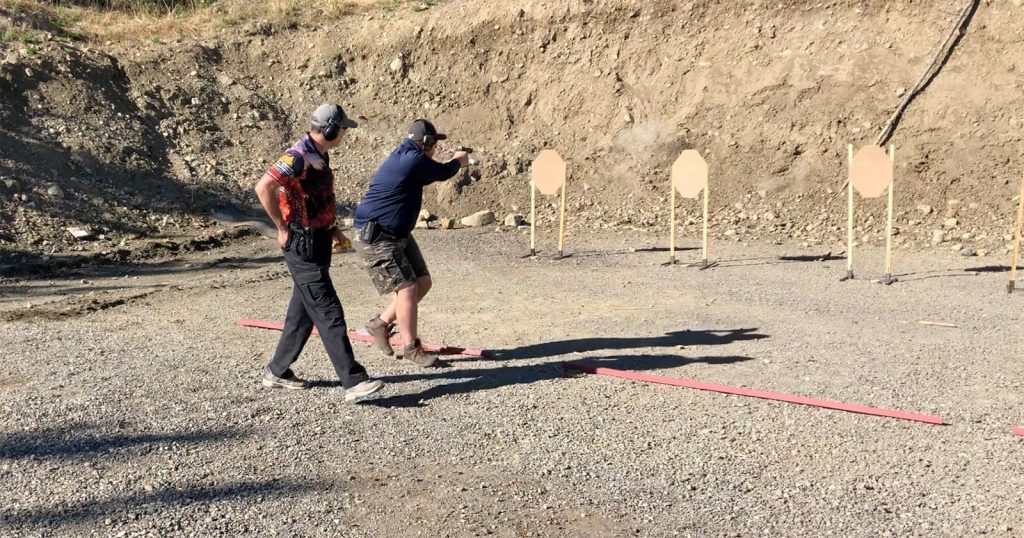
There are a tonne of rules, and they teach and test those throughout the 3 day course. On the last day of the course you compete in what’s called a “mini match” where you and your classmates compete against one another in a stage setup by the instructor. You’re timed, scored, and judged to see if you break any of the rules that would DQ you. If you get DQ’d, you don’t complete the course. If you do complete it, you’re not done yet.
In order to get your “Black Badge” (BB) certification you have to actually register and compete in your first sanctioned match, and not get disqualified. It may take a while to do this since the matches fill up to their capacity (150-200 per day) within 60-90 seconds from registration opening. There are so many competitors waiting for the 7pm registration opening time that they’re hitting refresh on the registration page like a bunch of teenage girls waiting to buy One Direction tickets (or insert updated boy band reference here). If you do manage to register, now you have have to complete the entire full-day match that typically involves about 8-10 stages, without getting disqualified. It’s a big deal to pass, and everyone cheers for you, because it’s a big rite of passage. Nobody wants to have anyone beside them that’s wholly unsafe, or does stupid things, which is why the BB course is so well respected. It actually is internationally recognized as a “holster certification”, meaning that each range requires either their own range holster course to be completed before you’re allowed to draw a pistol from a holster, or that you hold the Black Badge certificate.
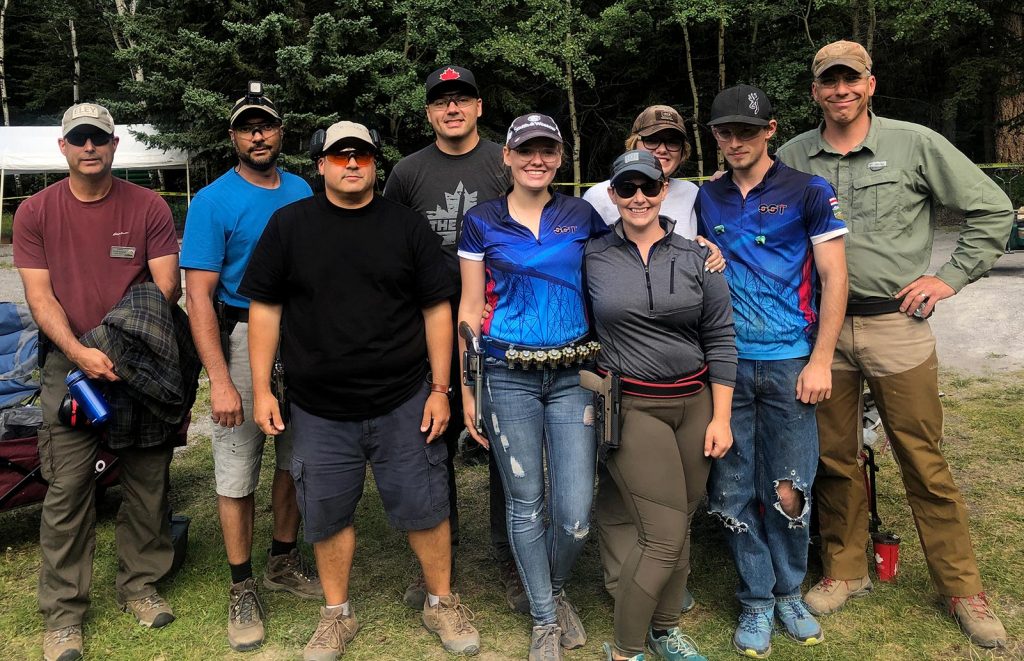
A lot of us are professionals like doctors, psychologists, business owners, lawyers, accountants, and IT folks, and there are tons of people from all walks of life, backgrounds, religions (or lack thereof).
Painting us all like crazed “gun nuts” that “fetishize” the gun, or whatever the hell that means, is wholly unfair and quite hurtful, in fact. We spend a lot of time dedicating ourselves to our sport, training, getting into as good of a shape as we can, spending countless hours of “dry-firing” during the winter to make sure we can be a 1/2 second faster next year, to the countless thousands of dollars spent each year on ammo for training and competition. On top of that we spend a lot of money from travel and accommodations for competitions, to gear purchase and upgrades, and everything else associated with competing in our sport. I also play hockey, and I see my hockey gear no differently than my shooting gear.
I went, in about 6 short years, knowing nothing about firearms and guns, to effectively being an “expert” and an amateur gunsmith. I do all of my own light gun-smithing work (i.e. no milling or machining) and have tuned my pistols for competition numerous times. I do all of my own repairs and maintenance as well.
I find myself being able to identify what kind of make/model/caliber something is (90% of the time) from a quick picture or 1/2 second TV shot, and now I’m that guy that yells at the TV when something is “unrealistic or doesn’t work that way in real life”.
Like anything in life, if you care about something you’ll try to learn all you can about it and be the best you can be at it.
So please don’t make me out to be some lonely crazy guy clutching his gun and his bible yelling at the clouds. For starters, I don’t even own a bible.
